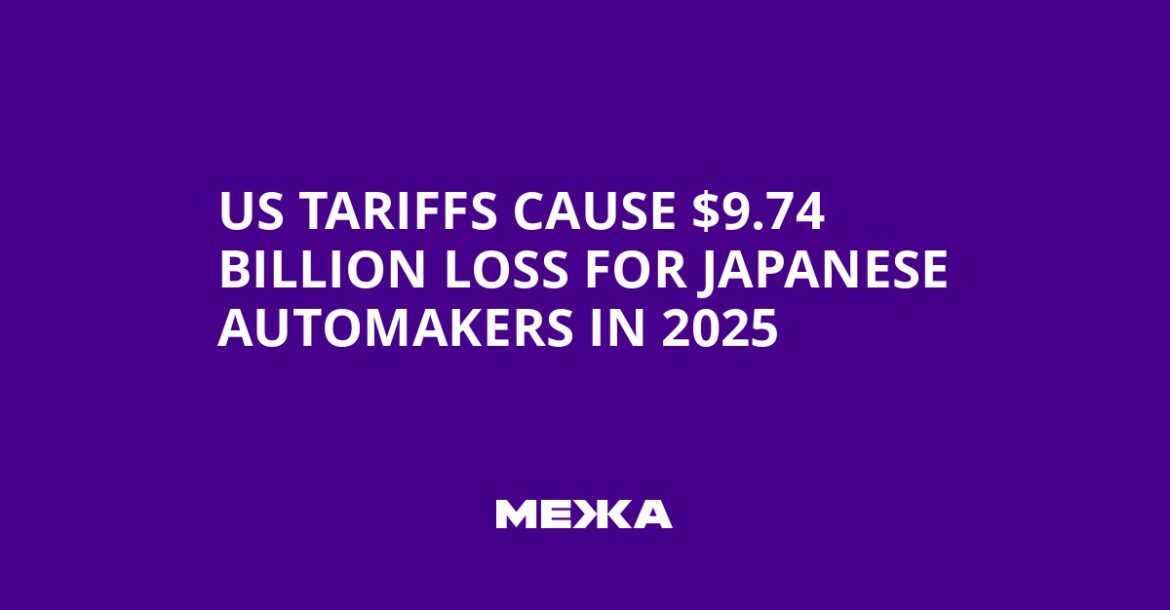According to sources in Asia, the seven largest Japanese automakers incurred total profit losses of 1.5 trillion yen (about $9.74 billion) from April through September due to the impact of American import tariffs.
The combined net profit of Honda, Mazda, Mitsubishi, Nissan, Toyota, Subaru, and Suzuki for the same period was slightly less than 2.1 trillion yen (about $13.64 billion), roughly 30% lower than the corresponding period last year.
Profitability has declined for the second year in a row, but analysts say that without tariffs and currency fluctuations these figures could be substantially higher.
American tariffs of 27.5% on imports of Japanese cars remained in force for nearly the entire period from April through September, until they were cut to 15% on September 16.
The strengthening of the yen also weighed on results: aggregate operating profitability of the seven manufacturers fell by about 700 billion yen (over $4.5 billion). Nissan, Mazda, and Mitsubishi reported net losses.
On the other hand, Toyota and Subaru recorded sales growth during this period.
Leaders’ positions and the impact of tariffs on financial results
Toyota strengthened its lead thanks to demand for hybrid models; despite tariff-related costs estimated at around 900 billion yen (about $5.84 billion), global sales rose by 5% and reached a new high.
Mazda, for which the United States accounts for about a third of its global sales, saw net profit fall by 97.1 billion yen (roughly $630 million) in April–September, marking the first net loss in five years.
Subaru also faced substantial losses: roughly 80% of its sales are in the United States. While sales rose thanks to the launch of new models, tariff costs of 154.4 billion yen (about $1 billion) eroded profitability.
Suzuki hardly supplies cars to the United States at all – new or passenger cars – so the direct tariff impact on the company was minimal; however, costs are expected due to a chip shortage in the second half of the financial year, according to industry sources.
On September 4, U.S. President Donald Trump signed an order allowing reductions in tariffs on imports of Japanese cars and other goods from that country.
Despite the relatively sluggish period, the Japanese automotive industry remains adaptable: manufacturers are seeking new growth channels, investments in technology, and models that meet the demands of the American market and global competition.


AloJapan.com